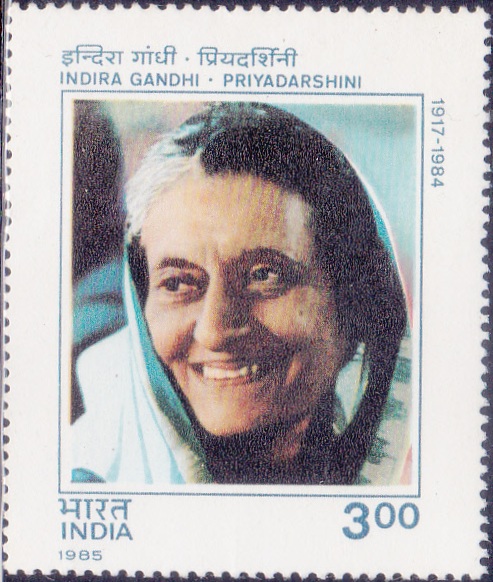
Indira Gandhi : Priyadarshini
A postage stamp on Indira Gandhi Commemoration (4th Issue), daughter of First Indian Prime Minister, Jawaharlal Nehru (1947-64) :
 Issued by India
Issued by India
Issued on Nov 19, 1985
Issued for : The Department of Posts pay its humble tribute to its charismatic and dynamic leader on her birth anniversary by issuing this commemorative stamp.
Description of Designs : The 300 P. multicolour stamp has been designed by Romesh Chopra. The First Day Cover is based on a photograph taken by Raghu Rai. The cancellation has been designed by Nenu Bagga.
Type : Stamp, Mint Condition
Colour : Multicolour
Denomination : 300 Paise
Overall size : 4.83 x 4.06 cms.
Printing size : 4.4 x 3.6 cms.
Perforation : 14 x 14
Paper : Unwatermarked P.G. matt coated paper
Number printed : 15,00,000
Number per issue sheet : 20
Printing process : Photogravure
Printed at : India Security Press
Name : Indira Priyadarshini Nehru
Born on Nov 19, 1917 at Allahabad, United Provinces, British India
Died on Oct 31, 1984 at New Delhi, India
About :
- Indira Gandhi was born on 19th November, 1917 in Allahabad. She was named Indira Priyadarshini “She who one loves to look upon”. In a letter to Jawaharlal Nehru on the occasion, Sarojini Naidu wrote : “This child will be the new soul of India“. Indira Priyadarshini had her early education in Vishwa Bharati, Shantiniketan and Switzerland. Later she joined Sommerville College at Oxford, England.
- Young Indira was actively involved in the country’s freedom struggle from a very early age. She founded the ‘Bal-charkha Sangh‘ and in 1930, the ‘Vanar Sena‘ of children to help the Congress party during the non-cooperation movement. Her father Jawaharlal Nehru influenced her deeply. To her, he was a companion, a teacher and a colleague. His letters from the prison ‘Letters from a father to a daughter‘ and also ‘Glimpses of World History‘ imparted to her a sense of history and heritage and a global view of the world, a view that found expression as she matured, in her perceptions and actions. Indira was married to Feroze Gandhi, a childhood friend on March 26, 1942. Indira and Feroze were closely associated with the non-cooperation movement. On India‘s Independence she wrote : “It is one of the proudest and most exciting moments of my life“.
- Throughout Jawaharlal Nehru‘s tenure of 17 years as Prime Minister, Indira was active at home in various capacities. She was the official hostess for her father and met a large number of world personalities, each new meeting and experience enriching her personality and preparing her for the role she would later play in shaping India.
- In January 1966, she was sworn in as the Prime Minister of India. Indira had a tough determination and led the country ahead with her inexhaustible capacity to work, and an uncanny sense of timing. She had an intense love of life, and at the same time clarity, precision, a fierce courage, an inexhaustible energy and a concern for detail.
- Under her dynamic leadership and guidance, India progressed on all fronts. Sensitive to the needs of the country with its multifarious religions, languages and customs, Indira dreamt and worked for a modern and self reliant India. Her policies, specially in areas of rural development, education, and industrial development, helped to create an economically sound climate in which the country and its vast multitudes of people progressed.
- In the years of her leadership, full of activity and political turmoil, she found sustenance in nature and in a close identification with the creative arts. Immaculately groomed, she was soon to be regarded as one of the most elegantly dressed woman in India. Meeting and talking to artists and writers, philosophers and scientists revived her, enriched her and provided her with regenerating source of energy. She had a fund of anecdotes and the capacity to generate conversation turned to the interests of her guests which made her a thoughtful and gracious hostess.
- As chairperson of the Non-Aligned, she voiced concern for world peace. In telling words, she said “We must create a new international order of humanity where power is tempered with compassion, where knowledge and capability are at the service of all humanity.”


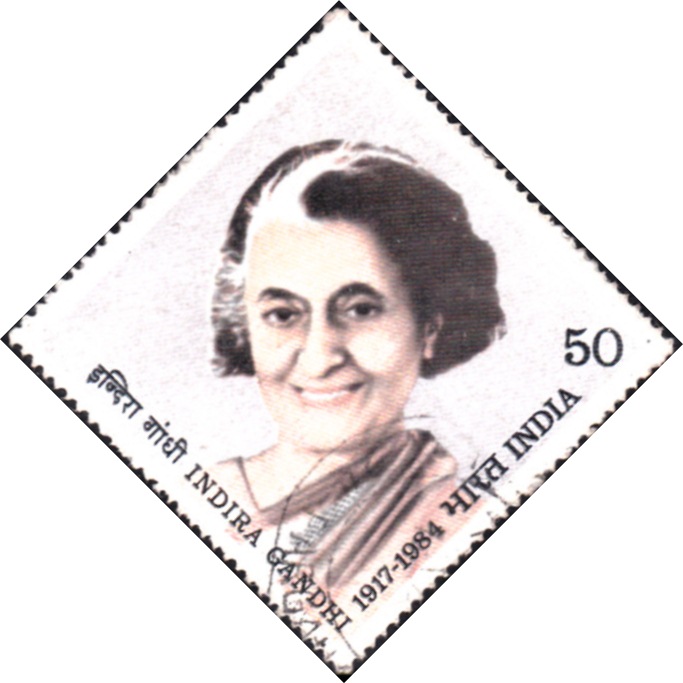
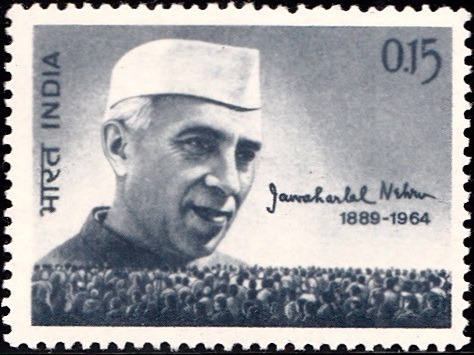
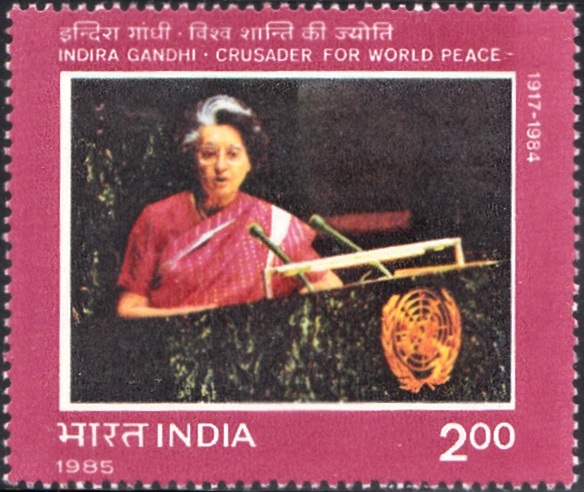
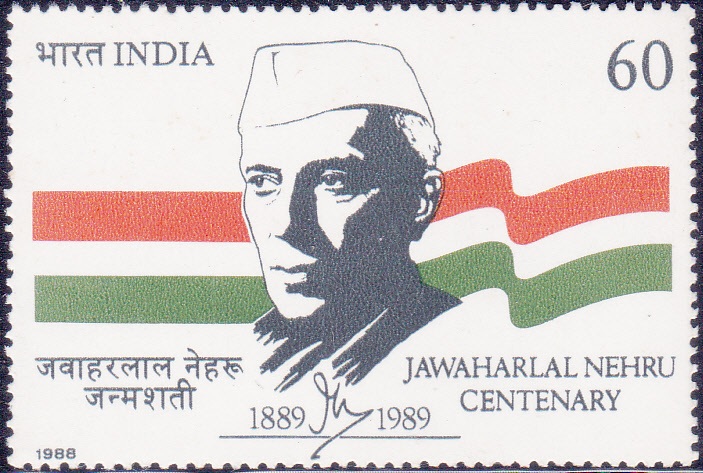
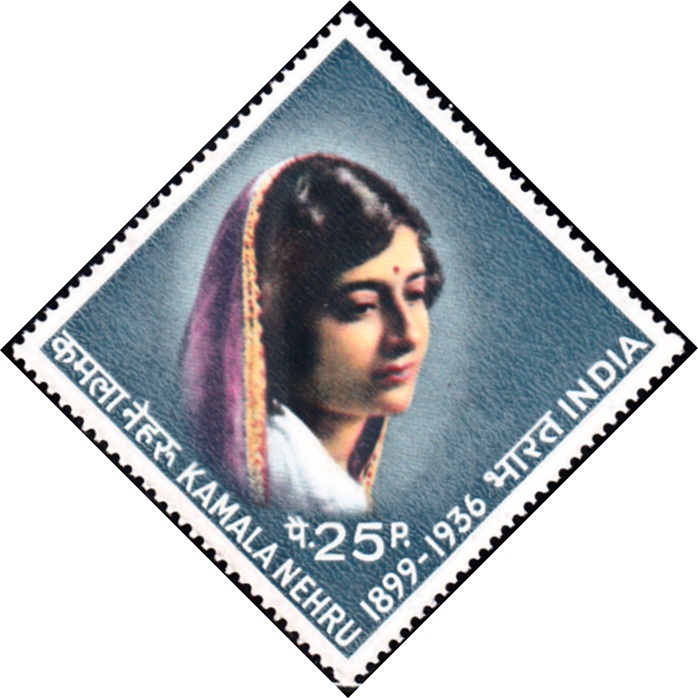
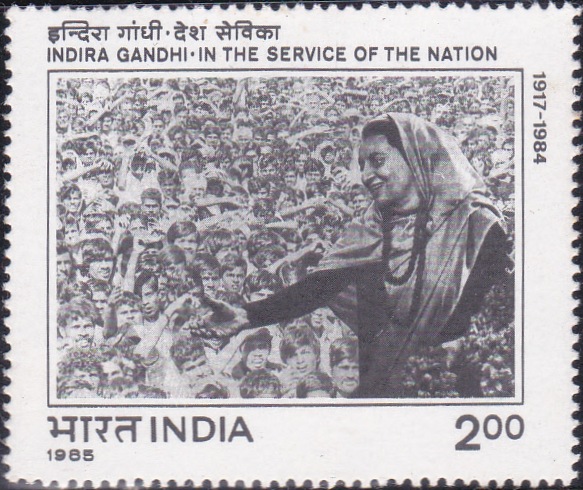
[…] he defeated Tom Canon of England in 1892. Ghulam accompanied the late Pandit Motilal Nehru, the present Prime Minister’s grand-father, to Paris in 1900 and defeated Kader Ali of Turkey to become the world champion. […]
[…] of Awami league escaped from home. He reached India crossing the border. In India he met with Indira Gandhi, the then Prime Minister of India. After meeting with Indira Gandhi, the then Prime Minister of […]